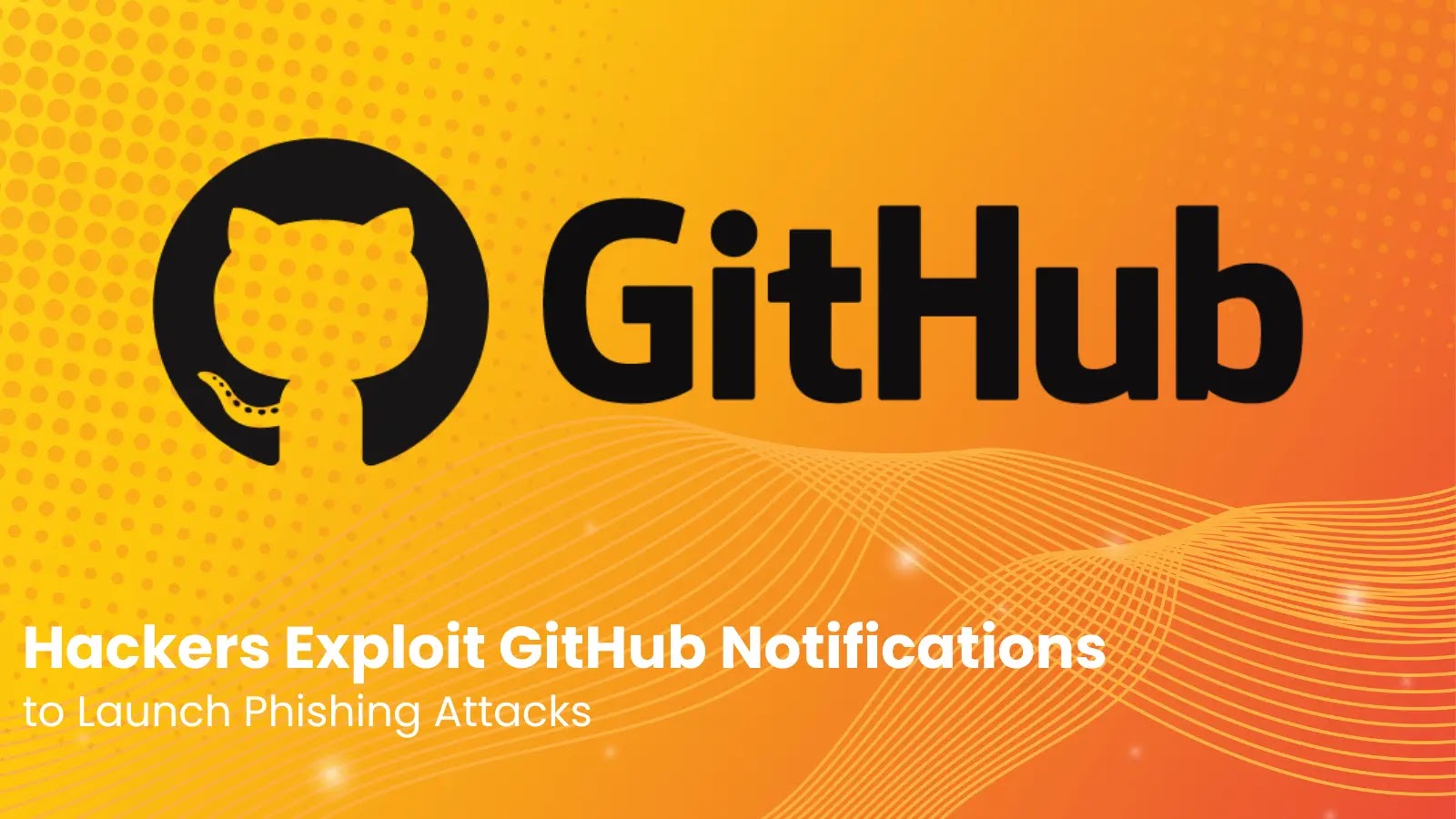Hackers Exploit GitHub Notifications to Launch Phishing Attacks
Cybersecurity researchers have uncovered a new phishing campaign that exploits GitHub’s official notification system to deliver malicious links and credential-stealing payloads.
By capitalizing on the trust that open-source contributors place in GitHub’s communication channels, cybercriminals are able to bypass traditional email filters and social engineering defenses.
The campaign begins with an email that closely mimics GitHub’s standard notification format, complete with the familiar logo, header styling, and footer links.
Recipients receive messages warning of new collaborator invitations, pending pull-request reviews, or security alerts on repositories.
In reality, the links in these notifications redirect to attacker-controlled domains designed to harvest GitHub credentials.
Security analysts note that victims who enter username and password information on these spoofed sites inadvertently grant threat actors full access to their code repositories and private data.
An interesting twist observed in this wave of attacks is the misuse of Gitcoin’s developer fund announcements as a lure.
One sample phishing email referenced the “GitHub × Gitcoin Developer Fund 2025” program, drawing on the appeal of community grants and open-source funding initiatives.
By blending two trusted brand names, attackers increase the credibility of the message, making recipients more likely to comply without suspicion.
A refundable deposit requirement mentioned in the phishing lure further persuades users to proceed, under the guise that legitimate payments are necessary to reserve grant funding.
Sophistication of the Phishing Infrastructure
Unlike crude phishing messages that contain obvious spelling errors or generic wording, these emails employ dynamic content and personalized details.

Attackers leverage information harvested from public profiles—such as repository names, recent contributions, and follower counts—to craft messages that appear tailored to each recipient.
Embedded tracking pixels and unique URLs enable threat actors to identify which targets engage with the email and to trigger follow-up messages aimed at deepening the compromise.
To evade detection, these phishing emails are dispatched from compromised mail servers or botnets that have previously delivered benign traffic.
Email security gateways that rely solely on domain reputation are less effective, as the source IPs and sending domains often have clean histories.
The use of valid DKIM signatures and SPF records further complicates filtering efforts, making it challenging for automated defenses to distinguish between legitimate GitHub notifications and malicious forgeries.
Mitigations
Developers and repository administrators should exercise heightened vigilance when interacting with unexpected GitHub notifications.
Verifying the actual URL behind any links—by hovering over them before clicking—and confirming messages via the GitHub web interface or official mobile app can prevent credential exposure.
Enabling two-factor authentication (2FA) on GitHub accounts is strongly advised; even if credentials are compromised, 2FA can block unauthorized access.
Organizations can bolster their email security posture by implementing advanced anti-phishing solutions that analyze message content, user behavior, and link destinations in real time.
Security teams should also deploy domain-based message authentication, reporting, and conformance (DMARC) policies that reject or quarantine unauthenticated emails claiming to originate from github.com.
Regular phishing awareness training and simulated exercises will help ensure that developers recognize the hallmarks of sophisticated lures.
As open-source ecosystems continue to grow, threat actors will likely refine their tactics, leveraging brand trust and community engagement to launch increasingly convincing phishing campaigns.
By adopting layered defenses, maintaining constant vigilance, and fostering a security-first culture among developers, organizations can reduce the risk posed by these emergent threats and safeguard their repositories against unauthorized intrusion.
Follow us on Google News, LinkedIn, and X to Get Instant Updates and Set GBH as a Preferred Source in Google.














Post Comment